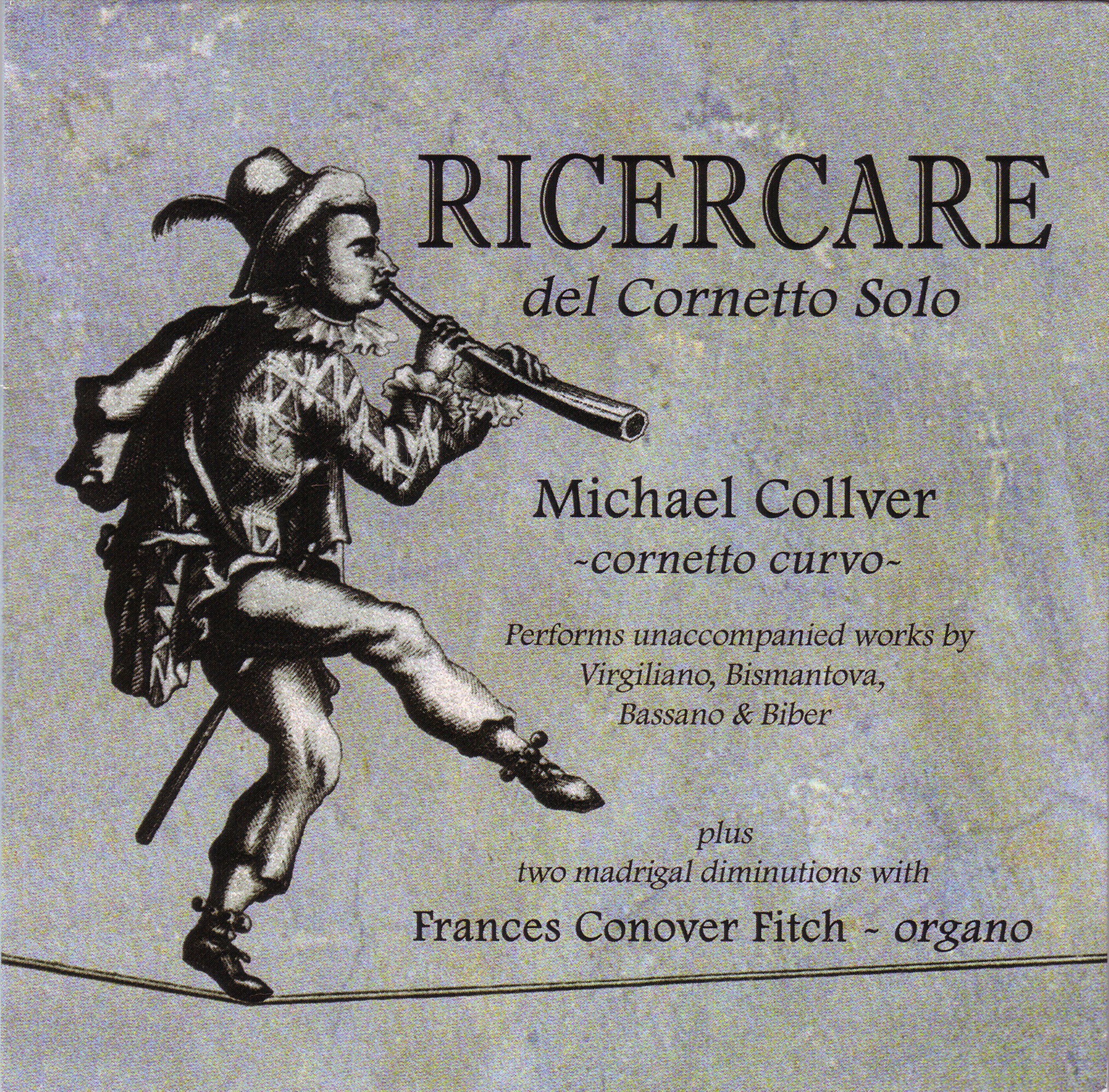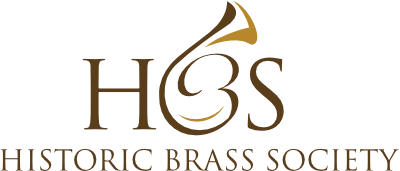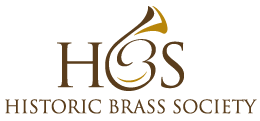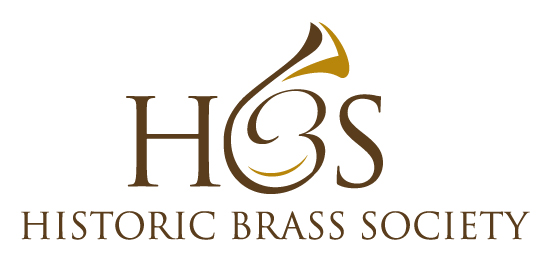
Ricercare del Cornetto Solo: Unaccompanied works by Virgiliano, Bismantova, Bassano & Biber
Michael Collver, cornetto, and Frances Conover Fitch, organ
Available as a CD (Fauve Sounds 102), or included with editions of all works performed in the new “222 Chopbusters for the Cornetto” (available from
Over the past three decades there have been countless recordings featuring the cornetto. It is represented in large scale works such as Monteverdi’s Vespers (1610), the majestic Venetian repertoire together with sackbuts, and in many impressive accompanied solo works. Yet, the most fundamental and at the same time most demanding category of the repertoire has been neglected: the ricercar.
Published as pedagogical studies together with numerous examples of cadential ornamentation, these works were not only the technique-mastering etudes of the day, in many cases they are solid pieces of music which, if performed well, give great pleasure to both performer and listener. They are indeed an art form.
Michael Collver is the first to offer a recording devoted to many of these works. It is hard to imagine a better work than the “Bismantova Preludio” to begin this recording. Within a few seconds the listener is captivated by Collver’s rich sound, command of the instrument and refined phrasing. His sound is complex, like a fine cabernet, and always singing. Collver is equally accomplished as a counter-tenor. His recording “Planctus” (2006) attests to this and is well-worth having for it is immensely evident that his approach to this music is vocally inspired. Nor can there be any doubt of his technical virtuosity, which is particularly special on Bassano’s “Ricercata settima and prima.”
Perhaps the greatest challenge to this repertoire is in shaping phrases. For the most part bar lines were not employed and elisions of phrases are frequent. The performer must find different ways to build and shape phrases with each encounter. The true test of the artist is to find a way (ricercare = to seek) to make sense of all of it, and to do this one must become immersed in the genre. There is no one perfect way to interpret ricercare; the artistry of the performer will determine whether or not they come off pedantically or as worthy works of wonder. Michael Collver’s interpretations rise to the level of art and open the door for the listener to hear just some of the possibilities which exist.
Included on the recording are Bassano’s diminutions on “Anchor che col partire” and dalla Casa’s diminutions on “Frais et galliarde,” which are sensitively supported by Francis Conover Fitch on organ. Nothing, however, adequately prepares the listener for the final track, Biber’s “Passacaglia” (originally for violin, here arranged by Collver). This is a monumental work matched by a monumental performance. It is some ten minutes in length and is full of mood swings, passionate lyrical playing and positively spectacular technical playing. One must hear it numerous times to take it all in.
Practitioners of early music owe a great thanks to Collver for presenting this recording not only because it is the first of its kind, but because it is so masterful and virtuosic. It is both a guide and inspiration.
-- James Miller



